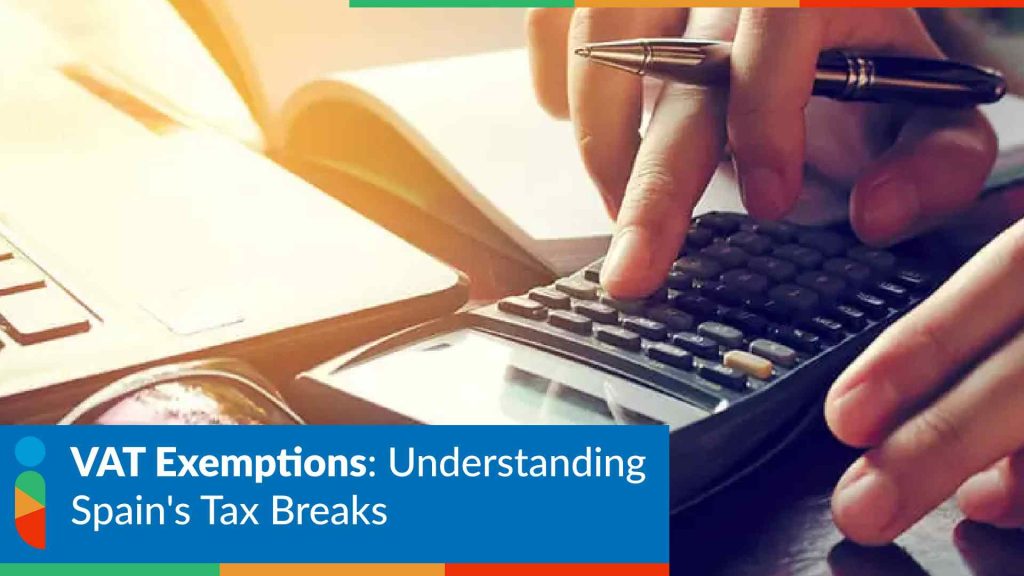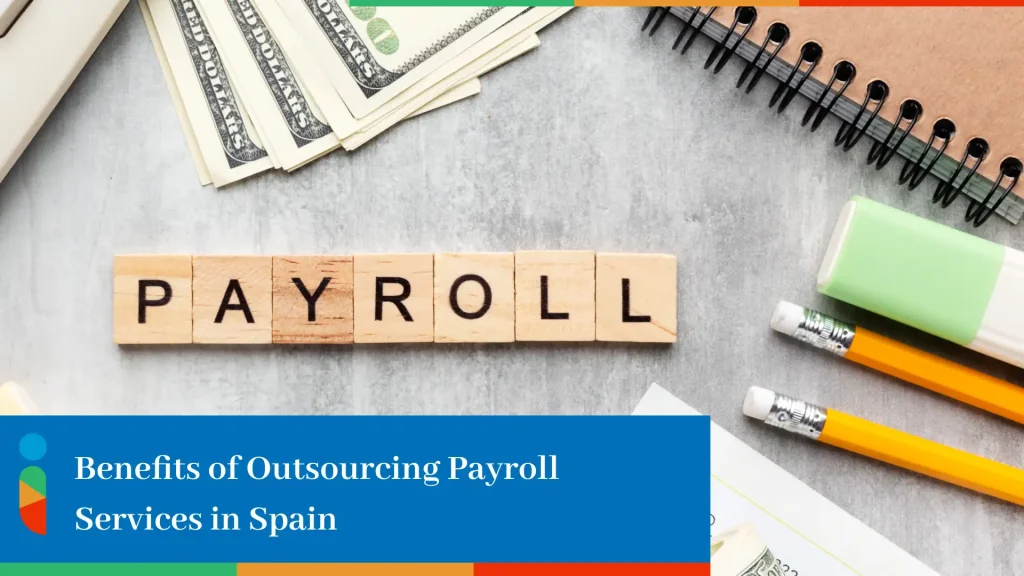VAT in Spain, a fundamental fiscal element, holds immense significance for businesses within its borders. Navigating the Spanish VAT landscape is essential to ensure tax compliance and exploit potential exemptions. Our exploration encompasses the various VAT categories, with a particular focus on Spain’s standard VAT rate, an integral component of the nation’s tax framework.
In this article, we unveil the intricacies of VAT in Spain, addressing crucial facets such as the VAT registration process, mandatory documentation, and obligations imposed on foreign companies. Understanding VAT in Spain is key to thriving in this dynamic fiscal environment.
Navigating the Spanish VAT registration process

The Value-Added Tax (VAT) in Spain is a pivotal revenue stream for the government, impacting both domestic and foreign entities. To operate within this system, understanding the VAT in Spain, its Value-added tax Spain regulations, and the Spanish tax authority’s role is indispensable. This section guides you through the complexities of the Spanish VAT registration process.
First and foremost, VAT registration in Spain is obligatory for businesses engaged in taxable activities. This process is overseen by the Spanish tax authority, also known as the Agencia Tributaria. To initiate the Value-added tax Spain registration, companies must present specific documentation and adhere to stringent VAT regulations in Spain.
To embark on this journey, businesses need to gather essential paperwork. These documents include proof of identification, business details, and financial records. Accuracy and completeness are paramount, as any discrepancy could hinder your VAT exemptions Spain eligibility.
The Spanish tax authority, renowned for its meticulous oversight, scrutinizes these documents to ascertain your eligibility for VAT registration. Timeliness is crucial, as failing to meet deadlines may result in fines and penalties.
Foreign businesses operating within Spain’s borders must also contend with VAT registration. Understanding the VAT in Spain for foreign entities involves additional considerations. Essentially, foreign companies must register for VAT if they engage in taxable activities, like selling goods or providing services.
Navigating the Spanish VAT registration process might seem daunting, but it is an essential step for businesses looking to thrive in Spain’s dynamic market. By staying informed about VAT regulations in Spain and working in close accordance with the Spanish tax authority, you can ensure a smoother journey toward VAT compliance and potential VAT exemptions Spain, optimizing your financial standing in this vibrant economy.
Gathering required documentation for VAT registration
In the realm of VAT in Spain, proper documentation is the cornerstone of a successful VAT registration process. Understanding the Value-added tax Spain system’s intricacies, VAT regulations in Spain, and the meticulous oversight by the Spanish tax authority is vital. Here, we dive into the essential documents required for VAT registration, ensuring compliance and potential VAT exemptions Spain.
The journey toward VAT registration in Spain commences with the meticulous gathering of necessary paperwork. To navigate the Value-added tax Spain landscape effectively, businesses must ensure they possess the following key documents:
- Proof of Identification: This includes official identification documents, such as passports or ID cards, for the individuals associated with the business.
- Business Details: Detailed information about your business, including its legal structure, trading name, and registered address, must be provided.
- Financial Records: A comprehensive set of financial records, such as balance sheets, profit and loss statements, and bank statements, is essential to demonstrate your financial standing and capability to meet tax obligations.
- Tax Identification Number (TIN): Your Tax Identification Number is crucial, and you need to ensure it is in order before proceeding with VAT registration.
- Previous VAT Registration: If your business was previously registered for VAT in Spain, records of previous VAT numbers and deregistration documents should be available.
- Transaction Records: Accurate transaction records, including invoices and receipts, are essential for verifying your business’s VAT-related activities.
- Sales and Purchase Ledgers: Well-organized sales and purchase ledgers are vital to provide a transparent view of your business transactions.
- Bank Details: Providing your bank details ensures that any VAT refunds or payments can be processed efficiently.
The Spanish tax authority, the Agencia Tributaria, scrutinizes these documents meticulously. Any inaccuracies or omissions may lead to delays or complications in the VAT registration process.
VAT Registration for foreign businesses operating in Spain
Navigating VAT in Spain is a critical consideration for foreign businesses that operate within its borders. Understanding the Value-added tax Spain regulations, the role of the Spanish tax authority, and the possibility of VAT exemptions Spain is vital for foreign entities looking to establish their presence in this dynamic market.
Foreign businesses that conduct taxable activities in Spain, such as selling goods or providing services, are subject to VAT registration requirements. The intricacies of VAT regulations in Spain can vary for foreign entities, and adherence to these rules is essential.
One significant aspect to consider is the appointment of a tax representative in Spain. This representative acts as a liaison between the foreign business and the Spanish tax authority, facilitating communication and ensuring compliance.
Additionally, foreign businesses may need to navigate the complexities of international VAT rules and ensure proper documentation is in place for cross-border transactions. The Spanish tax authority, known for its stringent oversight, expects foreign businesses to meet their VAT obligations promptly.
Understanding the Value-added tax Spain system’s nuances can help foreign businesses optimize their tax position. This includes exploring potential VAT exemptions Spain that may apply to their specific operations.
To initiate VAT registration, foreign businesses must provide the necessary documentation, including proof of identification, business details, financial records, and any relevant tax identification numbers. Moreover, accuracy and completeness of these documents are paramount to a smooth registration process.
Consider selecting IberiaEOR for your VAT registration needs. With years of experience and a dedicated team of experts, we’ve helped numerous entrepreneurs and investors seamlessly enter the Spanish market. Our services not only simplify market entry but also provide essential guidance for your growth journey in Spain.
Key considerations for VAT refunds and compliance reporting
In the realm of VAT in Spain, understanding the intricacies of Value-added tax Spain regulations, and the role of the Spanish tax authority, is paramount. Equally important are the considerations for VAT refunds and compliance reporting, as these aspects can significantly impact a business’s financial health.
Compliance with VAT regulations in Spain is a continuous obligation. This includes timely reporting of VAT transactions, ensuring that invoices meet the standards set by the Spanish tax authority, and adhering to filing deadlines.
Also, one crucial aspect of VAT compliance reporting is accurate and complete record-keeping. Businesses must maintain comprehensive records of their VAT-related transactions, including sales and purchases, to facilitate the reporting process.
Timely submission of VAT returns and payments is non-negotiable. Therefore, missing deadlines can result in penalties and interest charges, potentially straining a business’s financial resources.
VAT refunds are another critical consideration. Businesses that pay more VAT on purchases than they collect on sales are eligible for refunds. Understanding the Value-added tax Spain system and its intricacies is vital to navigate this process effectively.
To optimize VAT refunds, businesses must ensure that their invoices are in order. Invoices should include all required details and meet the Spanish tax authority’s standards to avoid delays in the refund process.
Additionally, businesses operating internationally must navigate the complexities of cross-border transactions and VAT rules, ensuring compliance with both Spanish and international regulations.
In summary, staying compliant with VAT regulations in Spain and understanding the intricacies of VAT refunds and compliance reporting are essential for businesses operating in this dynamic fiscal environment. Timely and accurate reporting, adherence to invoice standards, and exploring potential VAT exemptions Spain can help businesses manage their VAT obligations effectively and optimize their financial position within the Value-added tax Spain system.
Common VAT categories in the Spanish tax system

To understand Spanish VAT fully, grasp its various categories within the Spanish tax system. Understanding VAT regulations in Spain regarding these categories and potential VAT exemptions Spain can be instrumental for businesses.
One of the most common VAT categories in Spain is the Standard Rate, currently set at 21%. Also, this rate applies broadly to goods and services, including electronics, clothing, and most services in Spain.
Another significant category is the Reduced Rate, which is set at a lower rate than the standard rate. This rate, currently 10%, applies to goods like food, books, and certain residential property renovation services in Spain.
For Super Reduced Rate items, a mere 4% VAT applies. This category primarily covers essential items such as basic foods, medical products, and certain cultural services.
Certain transactions may qualify for Exemptions, where no VAT is applied. While this might seem advantageous, it’s crucial to understand the Value-added tax Spain regulations governing these exemptions.
Zero-Rated items are those where VAT is charged at 0%. This rate typically applies to exports of goods and certain international services.
Moreover, businesses need to ensure that their invoices and records accurately reflect the appropriate VAT category for each transaction. This meticulous record-keeping is essential for compliance reporting to the Spanish tax authority.
In conclusion, comprehending the common VAT categories in the Spanish tax system is fundamental for businesses operating in Spain. This knowledge, along with awareness of Spanish VAT regulations and potential exemptions, ensures proper compliance and taxation in the Value-added tax Spain framework.
Zero-Rated Items: International Implications
In Spain’s VAT realm, exploring zero-rated items, especially their global implications, is crucial. Understanding Spain’s VAT regulations and their impact on cross-border transactions is essential for global businesses complying with Spanish tax authority standards.
Zero-Rated Items: Zero-rated items are a distinct category where VAT is charged at 0%. This rate typically applies to specific transactions, notably exports of goods and certain international services. For businesses in international trade, understanding zero-rated items is vital to navigate the Spanish Value-added tax system effectively.
In international commerce, the application of zero-rated VAT can provide a competitive advantage. Indeed, it allows businesses to sell to foreign customers without adding VAT, potentially increasing product appeal in the global market.
It is vital to stress that proper documentation and compliance with Spanish VAT regulations remain necessary for zero-rated international trade. Also, The Spanish tax authority expects accurate record-keeping and adherence to reporting deadlines, even for zero-rated transactions.
In conclusion, zero-rated items offer significant advantages in international commerce within the Value-added tax Spain framework. However, businesses must tread carefully, ensuring strict compliance with VAT regulations in Spain and meticulous record-keeping. This approach, along with awareness of potential VAT exemptions in Spain, can make global market operations smoother and financially beneficial.
Standard rate: exploring Spain’s most common VAT category
In Spain’s VAT landscape, the standard rate is a central pillar, embodying the essence of the Value-added tax system. Exploring this category while understanding associated VAT regulations in Spain is vital for businesses navigating the Spanish tax environment.
The Standard Rate: Currently set at 21%, the standard rate is the predominant VAT category in Spain. It casts a wide net, applying comprehensively to a diverse range of goods and services across various economic sectors. From electronic gadgets to clothing and most services, the standard rate encompasses a significant portion of daily transactions.
Understanding the applicability of the standard rate is fundamental for businesses operating within Spain. It dictates the VAT amount that must be calculated, collected, and remitted to the Spanish tax authority, Agencia Tributaria. Accurate assessment of the standard rate ensures compliance with VAT regulations in Spain and avoids potential penalties or fines.
To manage this common VAT category effectively, businesses should keep detailed transaction records, clearly showing the standard rate application. Proper record-keeping is vital for compliance reporting and ensuring accurate VAT accounting in financial statements. Additionally, businesses must explore VAT exemptions in Spain, as some transactions may qualify for different VAT treatment, resulting in tax savings.
In conclusion, VAT in Spain is a multifaceted system, and the standard rate is its cornerstone. Understanding Spain’s VAT, coupled with awareness of its regulations, is crucial for businesses to thrive in this fiscal environment.
Do you want to get in touch with IberiaEOR for additional details regarding Understanding Spain’s Tax Breaks? If you have any inquiries, reach out to us at via email at [email protected]. One of our representatives will be happy to assist you.






